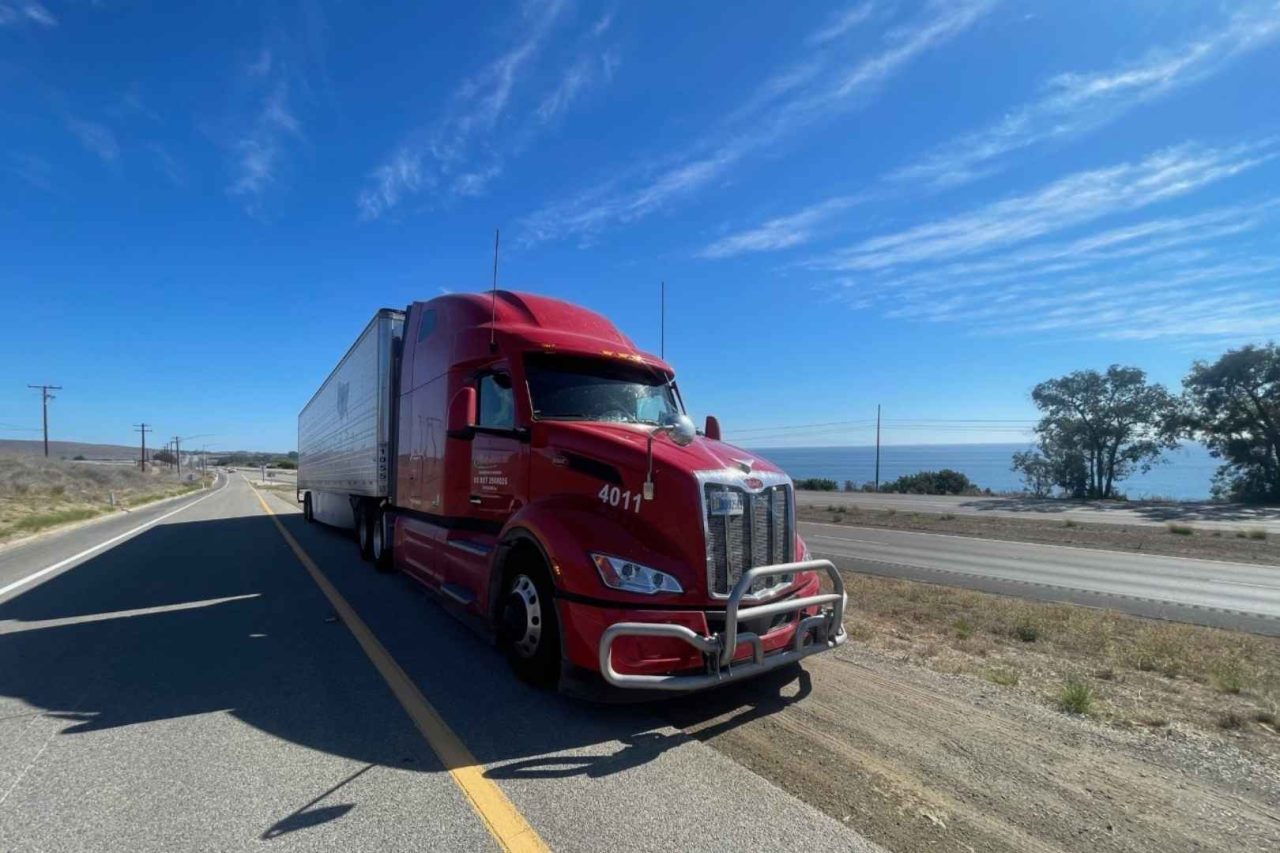Choosing the right OTR trucking partner for your business is a critical decision that impacts efficiency, customer satisfaction, and profitability. A reliable over-the-road (OTR) trucking partner ensures timely deliveries, cost-effective operations, and seamless logistics. This article explores key factors to consider, from understanding your shipping needs to evaluating technology and safety records. With practical insights and actionable tips, you’ll learn how to select a partner that aligns with your business goals and drives long-term success. Let’s dive into finding the ideal OTR trucking solution for your operations.
Understanding your business shipping needs
Selecting an OTR trucking company starts with a clear understanding of your business’s unique shipping requirements. Every company has distinct needs based on the type of goods, delivery timelines, and geographic scope. For instance, businesses handling perishable items like fresh produce need refrigerated trucks and strict temperature controls, while those shipping oversized equipment require specialized flatbeds. Mapping out shipment frequency, volume, and destinations helps narrow down partners equipped to handle your specific demands. A partner misaligned with your needs can lead to delays, damaged goods, or inflated costs.
Consider the nature of your cargo. Fragile items demand careful handling and secure packaging, while hazardous materials require compliance with strict regulations. Evaluate whether you need full-truckload (FTL) or less-than-truckload (LTL) services based on shipment size. Geographic coverage is equally critical—some partners excel in cross-country hauls, while others focus on regional routes. By defining these parameters, you create a blueprint for identifying a partner capable of meeting your operational goals. This step prevents costly mismatches and ensures smooth logistics.
Next, assess your delivery timelines. Are your customers expecting next-day delivery, or do you have flexibility with longer transit times? High-priority shipments may require expedited services, which not all OTR partners offer. Additionally, consider seasonal fluctuations in demand. A partner with scalable capacity can accommodate peak periods without compromising service quality. Clarity on these factors empowers you to ask targeted questions during the selection process, ensuring the partner you choose aligns with your operational rhythm.
Don’t overlook cost considerations. While budget is important, the cheapest option isn’t always the best. Hidden costs, such as fuel surcharges or penalties for delayed deliveries, can erode savings. A thorough understanding of your shipping needs allows you to balance cost with reliability and service quality. By prioritizing partners who match your requirements, you set the foundation for a partnership that enhances efficiency and customer satisfaction. This strategic approach minimizes disruptions and supports long-term growth.
Evaluating reputation and reliability
A trucking partner’s reputation and reliability are non-negotiable for business success. A company with a strong track record delivers goods on time, maintains clear communication, and handles challenges professionally. Researching a partner’s history reveals their ability to meet commitments. Online reviews, testimonials, and referrals from other businesses provide valuable insights into their performance. Look for consistent positive feedback about punctuality, customer service, and issue resolution to gauge dependability.
- Check online reviews and ratings – Platforms like Google Reviews or industry-specific forums offer unfiltered opinions from clients. Look for patterns in feedback, such as repeated praise for timely deliveries or complaints about poor communication. A partner with high ratings and detailed reviews likely prioritizes customer satisfaction. Cross-reference multiple sources to ensure accuracy, and pay attention to how the company responds to negative feedback. A proactive, solution-oriented approach indicates a commitment to improvement and reliability.
- Seek referrals from industry peers – Connect with businesses in your network to ask about their trucking partners. Personal recommendations carry weight, as they come from firsthand experience. Peers can share insights on a partner’s consistency, flexibility, and ability to handle specific cargo types. This approach helps you identify trusted providers who may not appear in online searches but have a strong reputation within your industry.
- Investigate years in business – Longevity often signals stability and expertise. A partner operating for decades likely has refined processes and a robust network. Newer companies can still be reliable, but established ones offer a proven track record. Check their website or industry directories for information on their founding date and growth milestones. Experience in your industry is a bonus, as it indicates familiarity with your unique challenges.
Reliability extends beyond on-time delivery. Assess how the partner handles unexpected issues, like weather delays or mechanical breakdowns. Do they have contingency plans, such as backup drivers or alternative routes? A reliable partner communicates proactively, keeping you informed of any disruptions. Ask potential partners about their average on-time delivery rate—industry benchmarks hover around 95% for top performers. A strong reputation paired with consistent reliability ensures your goods reach customers as promised, protecting your brand’s credibility.
Assessing technology and tracking capabilities
Modern OTR trucking relies heavily on technology to ensure efficiency and transparency. A partner with advanced tracking systems and logistics software provides real-time visibility into your shipments. This capability allows you to monitor progress, anticipate delays, and keep customers informed. Look for partners who integrate GPS tracking, electronic logging devices (ELDs), and cloud-based platforms. These tools streamline operations, reduce errors, and enhance communication between you and the trucking provider.
- Real-time GPS tracking – GPS-enabled tracking lets you see exactly where your shipment is at any moment. This feature is critical for time-sensitive deliveries or high-value cargo. It also enables proactive problem-solving—if a truck is delayed, you can adjust plans or notify customers. Ask partners about their tracking portal’s user-friendliness and whether it offers customizable alerts for milestones like departure or arrival. A robust system reduces uncertainty and boosts confidence in the partner’s operations.
- Electronic logging devices (ELDs) – ELDs ensure compliance with Hours of Service (HOS) regulations, reducing the risk of fines or delays. They also provide accurate data on driver activity, helping optimize routes and schedules. Partners using ELDs demonstrate a commitment to regulatory compliance and operational efficiency. Inquire about their ELD integration and how it enhances delivery reliability. This technology is a must-have for modern trucking operations.
- Integration with your systems – A partner whose technology syncs with your inventory or order management software creates a seamless workflow. This integration minimizes manual data entry, reduces errors, and speeds up communication. Ask about their API capabilities or compatibility with platforms like Shopify or SAP. A tech-savvy partner who aligns with your systems saves time and enhances overall logistics efficiency.
Technology also impacts cost management. Route optimization software, for example, reduces fuel consumption and transit times, potentially lowering your shipping costs. Partners who invest in predictive analytics can anticipate demand spikes or supply chain disruptions, offering a competitive edge. Evaluate their technology stack by requesting a demo of their tracking portal or discussing their software providers. A forward-thinking partner leverages technology to deliver transparency, efficiency, and value to your business.
Prioritizing safety and compliance
Safety is a cornerstone of any reputable OTR trucking partner. A strong safety record protects your goods, reduces liability, and ensures compliance with federal regulations. Partners with rigorous safety protocols demonstrate professionalism and care for their drivers, equipment, and your cargo. Review their safety ratings, compliance history, and insurance coverage to confirm they meet industry standards. A commitment to safety translates to fewer accidents, lower costs, and greater peace of mind.
Start with the Federal Motor Carrier Safety Administration (FMCSA) database. Check the partner’s safety rating and any history of violations. A “Satisfactory” or “Conditional” rating is standard, but consistent violations raise red flags. Examine their Compliance, Safety, Accountability (CSA) scores, which measure driver and vehicle performance. Low scores in areas like unsafe driving or vehicle maintenance indicate potential risks. A partner with clean records prioritizes safety and minimizes disruptions to your supply chain.
- Driver training programs – Well-trained drivers are less likely to cause accidents or damage goods. Ask about the partner’s training protocols, including onboarding, ongoing education, and defensive driving courses. Regular training ensures drivers stay updated on regulations and best practices. A partner investing in driver development shows a commitment to safety and professionalism, reducing risks for your shipments.
- Vehicle maintenance schedules – Regular maintenance prevents breakdowns and accidents. Inquire about the partner’s maintenance protocols, including how often trucks are inspected and serviced. A fleet of well-maintained, modern vehicles is less prone to mechanical failures. Partners who provide detailed maintenance logs or certifications demonstrate transparency and reliability in keeping their equipment road-ready.
- Insurance and liability coverage – Adequate insurance protects your goods in case of loss, damage, or theft. Verify that the partner carries cargo insurance, liability coverage, and workers’ compensation. Ask for proof of insurance and review policy limits to ensure they align with your cargo’s value. A partner with comprehensive coverage reduces your financial risk and ensures accountability.
Compliance with regulations like the International Fuel Tax Agreement (IFTA) and Hours of Service (HOS) is non-negotiable. Non-compliant partners risk fines, delays, or shipment seizures, which can disrupt your operations. Request documentation of their compliance processes, such as ELD usage or IFTA filings. A safety-first partner not only protects your goods but also enhances your reputation by ensuring reliable, lawful deliveries.
Exploring service offerings and network
The right OTR trucking partner offers services tailored to your business needs and a robust transportation network to support them. Whether you require specialized equipment, expedited shipping, or intermodal transport, their service portfolio should align with your goals. A wide network ensures they can handle deliveries across diverse regions, reducing the need for multiple partners. Evaluate their capabilities to confirm they can scale with your business and meet customer expectations.
- Full-truckload vs. less-than-truckload – FTL is ideal for large shipments, offering dedicated trucks for faster delivery. LTL suits smaller loads, consolidating shipments to save costs. Assess which service fits your volume and budget. A partner offering both provides flexibility as your needs evolve. Ensure they have experience handling your cargo type, whether dry van, reefer, or flatbed, to avoid logistical hiccups.
- Specialized equipment availability – Certain goods, like pharmaceuticals or heavy machinery, require specific trailers or handling. Confirm the partner has refrigerated units, flatbeds, or hazmat-certified trucks if needed. A diverse fleet indicates versatility and preparedness. Ask about their equipment’s age and condition—newer trucks are more reliable and fuel-efficient, reducing delays and costs.
- Geographic coverage and network strength – A partner with a broad network can deliver to remote or high-demand areas efficiently. Inquire about their lane coverage, terminal locations, and broker relationships. A strong network minimizes empty miles, lowering costs, and ensures consistent service. Partners with intermodal options, like rail or air, offer added flexibility for complex routes.
Ask about their capacity to handle peak seasons or unexpected demand surges. A partner with a large driver pool and scalable resources can maintain service quality under pressure. Discuss their relationships with brokers or load boards, as these connections help secure high-paying loads and reduce downtime. A versatile partner with a strong network becomes an extension of your business, supporting growth and adaptability.
Why APL Cargo stands out as an ideal trucking company partner
When selecting an OTR trucking partner, APL Cargo emerges as a top contender due to its commitment to reliability, technology, and customer-centric service. With a focus on long-haul transportation, APL Cargo offers a comprehensive suite of services tailored to diverse business needs. Their modern fleet, equipped with refrigerated, flatbed, and dry van trailers, ensures safe and efficient delivery of various cargo types. Their nationwide network enables seamless cross-country shipments, making them a versatile choice for businesses of all sizes.
APL Cargo’s investment in technology sets it apart. Their real-time GPS tracking and user-friendly client portal provide full visibility into shipment status, empowering businesses to plan proactively. Integrated ELDs ensure compliance with regulations, while route optimization software minimizes costs and transit times. Their team of experienced drivers undergoes rigorous training, prioritizing safety and professionalism. With competitive pricing, transparent communication, and a reputation for on-time deliveries, APL Cargo aligns with businesses seeking a dependable, forward-thinking OTR partner. Their scalability and personalized service make them an ideal fit for long-term success.
Reviewing certifications and industry standards
Certifications and adherence to industry standards signal a trucking partner’s commitment to quality and professionalism. Certifications like ISO 9001 or SmartWay indicate rigorous quality management and environmental responsibility. These credentials assure you that the partner follows best practices, reducing risks and enhancing service reliability. Compliance with FMCSA regulations and industry-specific standards, such as food safety for perishables, is equally critical. A certified partner is more likely to deliver consistent, high-quality service.
- ISO and SmartWay certifications – ISO 9001 reflects a focus on quality management, ensuring consistent processes. SmartWay certification highlights fuel efficiency and environmental sustainability, which can lower costs and align with eco-conscious brands. Verify these credentials through official registries or the partner’s documentation. Certified partners are often more reliable and innovative, offering peace of mind for your logistics needs.
- Industry-specific compliance – If you ship food, pharmaceuticals, or hazardous materials, ensure the partner meets relevant standards, like FDA regulations or hazmat certifications. Non-compliance can lead to fines or shipment delays. Ask for proof of certifications and audit processes. A partner with specialized compliance expertise reduces risks and ensures your goods meet regulatory requirements.
- Awards and recognitions – Industry awards, such as Best Fleets to Drive For, reflect a partner’s excellence in driver treatment and operations. These accolades often correlate with high customer satisfaction. Check trade publications or association websites for award listings. A partner with a history of recognition is likely to prioritize service quality and innovation.
Reviewing certifications requires due diligence. Request documentation and cross-check with issuing organizations to confirm validity. Discuss how the partner maintains compliance through audits, training, or technology. A commitment to industry standards not only ensures regulatory adherence but also enhances operational efficiency, making the partner a valuable asset to your supply chain.
Aligning values and long-term goals
Beyond logistics, the right OTR trucking partner shares your business values and supports your long-term objectives. A strategic fit ensures smoother collaboration and mutual growth. Whether you prioritize sustainability, transparency, or innovation, the partner’s ethos should align with yours. This alignment fosters trust, streamlines decision-making, and creates a partnership that evolves with your business. Discuss their mission, culture, and vision to confirm compatibility.
- Sustainability and eco-friendly practices – If your brand emphasizes sustainability, choose a partner with green initiatives, like fuel-efficient trucks or carbon offset programs. Ask about their environmental policies and certifications like SmartWay. A partner committed to sustainability enhances your brand’s reputation and reduces your environmental footprint, aligning with customer expectations.
- Transparency in operations – Open communication is vital for resolving issues and planning effectively. Look for partners who provide clear pricing, regular updates, and honest feedback. Ask about their dispute resolution process and how they handle billing discrepancies. A transparent partner builds trust and minimizes misunderstandings, fostering a strong working relationship.
- Support for business growth – A partner invested in your success offers scalable solutions and strategic advice. Discuss their ability to handle increased volumes or new markets as your business expands. Partners who provide analytics or consulting services can help optimize your supply chain. Choose a partner who sees your growth as their priority, ensuring long-term alignment.
Evaluate alignment through open dialogue. Schedule a meeting to discuss your business goals and gauge the partner’s enthusiasm for supporting them. Review their client retention rates—high retention suggests they build lasting relationships. A partner whose values mirror yours becomes a trusted ally, helping you navigate challenges and seize opportunities in the competitive logistics landscape.
Common questions about choosing an OTR trucking partner
The “People Also Ask” section on Google reveals common concerns businesses have when selecting an OTR trucking partner. Addressing these questions provides clarity and helps you make an informed decision. Below are five frequently asked questions with detailed answers, offering fresh insights beyond the article’s main sections.
What factors should I consider when choosing a trucking partner?
Selecting a trucking partner involves evaluating their ability to meet your specific logistics needs. Focus on their fleet capabilities, such as truck types and capacity, to ensure they can handle your cargo. Investigate their driver training and retention rates, as experienced drivers reduce errors. Financial stability is crucial—partnering with a company that has consistent cash flow minimizes service disruptions. Finally, consider their customer service approach. A partner with a dedicated support team ensures quick resolution of issues, keeping your supply chain on track.
How can I verify a trucking partner’s reliability?
To confirm reliability, start by checking the partner’s delivery performance metrics, such as on-time rates, through client testimonials or direct inquiries. Request case studies showcasing their handling of complex shipments. Verify their carrier authority and insurance through FMCSA’s website to ensure legitimacy. Engaging with their existing clients can reveal real-world performance, especially during peak seasons. A reliable partner maintains consistent communication and provides contingency plans for disruptions, ensuring your goods arrive as promised.
What role does technology play in OTR trucking partnerships?
Technology enhances efficiency and visibility in OTR trucking. Advanced systems like telematics provide data on driver behavior and fuel usage, optimizing costs. Cloud-based platforms enable seamless document sharing, reducing paperwork errors. Partners using predictive analytics can forecast demand, helping you plan inventory. Technology also improves customer experience—real-time updates keep clients informed, boosting satisfaction. Choosing a partner with a robust tech infrastructure ensures smoother operations and a competitive edge in logistics.
How do I ensure a trucking partner is cost-effective?
Cost-effectiveness goes beyond low rates. Analyze the partner’s pricing structure for hidden fees, like detention or accessorial charges. Compare their fuel efficiency and route planning capabilities, as these impact long-term costs. A partner offering volume discounts or flexible payment terms can align with your budget. Evaluate their load optimization strategies—maximizing truck space reduces trips and expenses. Transparent pricing and a focus on efficiency ensure you get value without sacrificing service quality.
Why is driver experience important in OTR trucking?
Experienced drivers enhance delivery reliability and cargo safety. They navigate challenging routes, manage time-sensitive deliveries, and handle unexpected road conditions with expertise. High driver turnover can lead to inconsistent service, so choose a partner with low turnover and strong retention programs. Experienced drivers also understand compliance requirements, reducing the risk of regulatory issues. Their professionalism reflects on your business, ensuring customers receive goods in excellent condition, which strengthens your brand’s reputation.



































